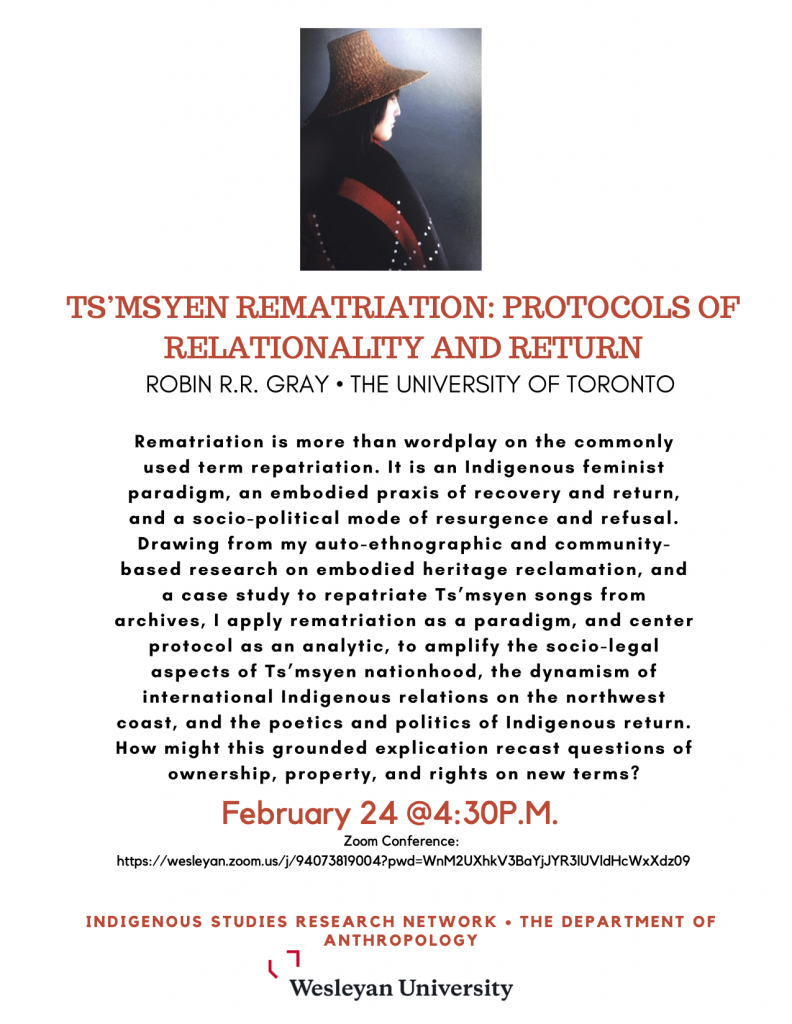TS’MSYEN REMATRIATION: PROTOCOLS OF RELATIONALITY AND RETURN

Dr. Robin R. R. Gray is Ts’msyen and Mikisew Cree, and an Assistant Professor of Sociology at the University of Toronto. Her research centers primarily on the politics of Indigeneity in settler colonial contexts such as Canada, USA, New Zealand, and Australia. Dr. Gray’s current research projects focus on the repatriation of Ts’msyen songs from archives, and foundational issues related to the preservation, management, ownership, access, and control of Indigenous cultural heritage. She is working on a book manuscript tentatively titled, Rematriation: Indigenous Law, Property and Nationhood. In it she is analyzing various forms of Indigenous repatriation to interrogate the colonial power dynamics engendered by the transformation of Indigenous cultural heritage into the property of people, states and institutions unrelated to the source community. Theoretically, it necessarily confronts the contested sites of archives, museums, law, ethnographic collecting practices, cultural appropriation, collective memory, intellectual property issues, and Indigenous rights, while it also disrupts totalizing discourses of Indigeneity, nationhood, law, and property—including the concept of repatriation itself.
